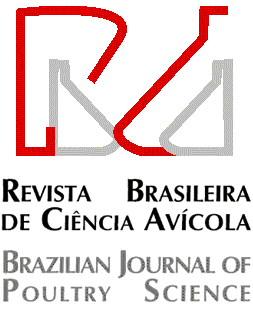ABSTRACT
The study aimed to determine evaluate the use of sorghum as a substitute for maize in the laying quail diet and its effect on performance and quality of the eggs produced the best levels of lutein (Marigold flower extract) and canthaxanthin inclusion in sorghum based Japanese quail feed as well as its influence in storage time of the eggs. A total of 680 Japanese laying quails (Coturnix coturnix japonica), with 64 weeks of age was distributed in a 4 × x4 factorial + 1 control scheme, with four levels of lutein (LUT), and four levels of canthaxanthin (CTX) and control group with no addition of pigments, with five replicates and eight birds per experimental unit. The experiment was divided into three cycles of 21 days, where the performance and egg quality parameters were evaluated. To evaluate the time of deposition and permanence of the pigments in the yolk, three eggs were evaluated per treatment for 12 days at the beginning of the experiment and 12 days at the end, from the last day of consumption of rations containing pigments. For performance and egg quality, no maybe only differences (p> 0.05) were observed, except for the yolk color, with higher color scores according to the increase in lutein and canthaxanthin consumption. Whereas color parameters, it was observed that at the beginning of the period of consumption, canthaxanthin levels influenced the red color reading and lutein levels influenced the yellow color readings, while in the final period the interaction of the levels of 5.4 ppm of lutein and 1.3 ppm of canthaxanthin provided better color parameters up to 10 days after the end of consumption of rations with pigment.
Keywords:
Carotenoids; canthaxanthin; color; lutein; yolk
